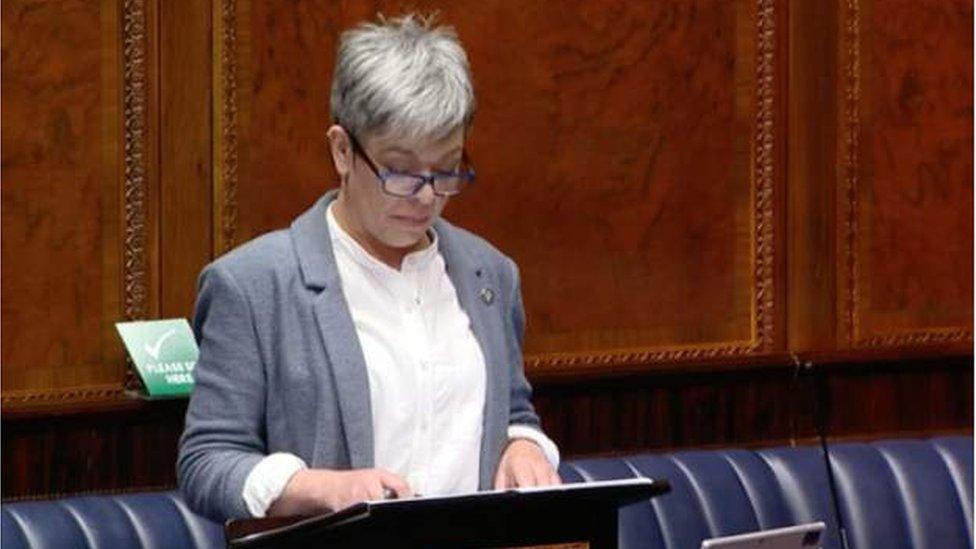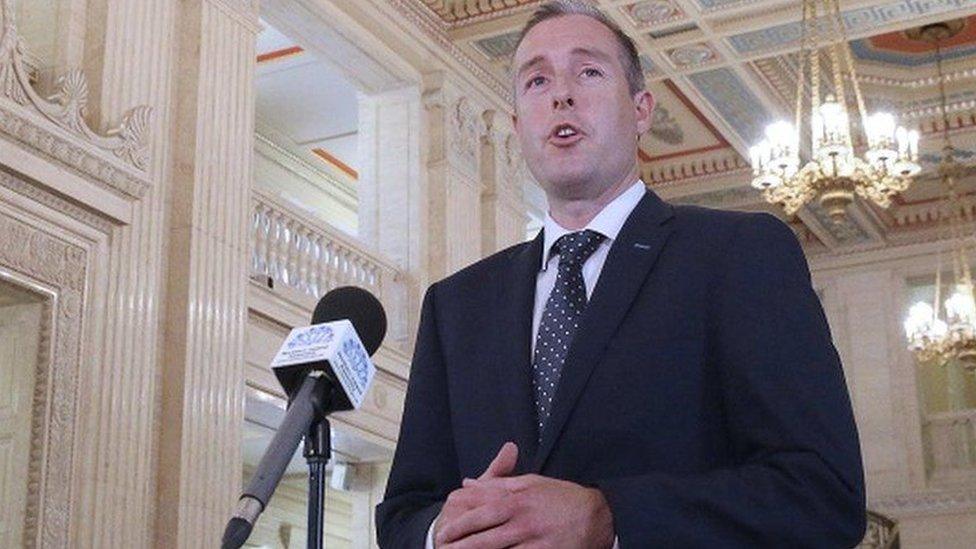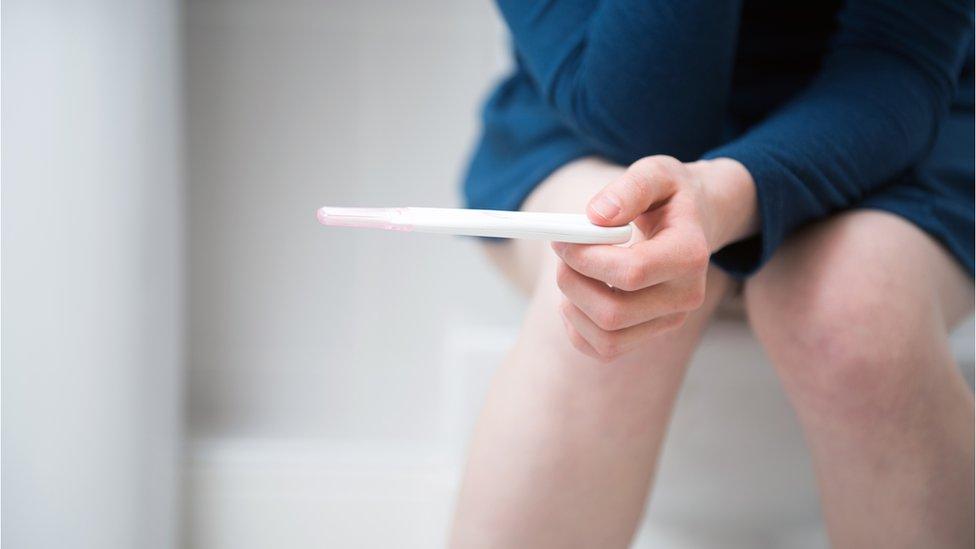Plans for abortion protest exclusion zones backed by MLAs
- Published

A majority of Stormont parties have backed proposals for exclusion zones banning anti-abortion protests outside sexual health centres in Northern Ireland.
Protests and demonstrations would not be allowed within the zones.
The assembly voted on Tuesday, by 58 votes to 29, to allow the bill to complete its first key legislative hurdle.
If the legislation becomes law it would be the first of its kind in the UK.
But there remain several legislative hurdles before the bill would make it into law.
Green Party Northern Ireland leader Clare Bailey is behind the move and said it will protect staff and women accessing services.
Laws allowing for the provision of abortion services in Northern Ireland took effect last March, after they were drawn up by Westminster.
Following a public consultation, the government decided not to include powers to establish exclusion zones but said it would keep the matter "under review", external.
Ms Bailey proposals, which she brought through Stormont in a private member's bill, put the onus on the Department of Health to establish "safe access" zones outside premises providing abortion services.
Speaking during the second stage of the debate on Tuesday, Ms Bailey said it was "not a rushed response" to the number of protests outside sexual health and pregnancy counselling clinics, but what she had witnessed while volunteering for the Marie Stopes Clinic in Belfast almost a decade ago.
She said during her time she had experienced being "spat at, I had holy water splashed on me, I was verbally abused, I had one young woman who was so distressed she ran into four lanes of oncoming traffic to escape the protestors".
She called on MLAs to "focus on what this bill seeks to achieve, and that is simply safe access to health care provision for all people and all staff", insisting it was not an attempt to remove the right to protest.

Clare Bailey is bringing the proposal through a private member's bill
Sinn Fein, Alliance, the SDLP and Ulster Unionists were among parties in favour of the move.
But the DUP and TUV said they were strongly opposed to it, arguing it could affect the rights of people to protest.
DUP MLA Jonathan Buckley described the bill as "regressive".
"Neither I nor my party support abuse or harassment," he said, adding that he was concerned that "anything from a conversation to a leaflet" would be deemed criminal under the legislation.
While TUV leader Jim Allister dismissed the suggestion that "to oppose this bill is to endorse harassment, abuse or violence".
"It is none of those things," he said.
'At the vanguard of safety'
But Sinn Féin's Emma Sheerin said while her party respected the right to protest, she argued that to justify the actions of those outside health clinics as protest "is a huge disservice".
Alliance's Paula Bradshaw told MLAs that she would support the bill, because "being at the vanguard of safety, wellbeing, privacy and dignity is exactly what this assembly should be about".
The SDLP's Cara Hunter said she believed the legislation addressed forms of intimidation, harassment and violence which she believed were unacceptable, while Ulster Unionist Alan Chambers called on parties to put aside their views on abortion and look at the bill as addressing safety in accessing healthcare.
Laws allowing for the provision of abortion services in Northern Ireland took effect last March, after they were drawn up by Westminster.
Following a public consultation, the government decided not to include powers to establish exclusion zones but said it would keep the matter "under review".
Ms Bailey's bill would put the onus on Stormont's Department of Health to establish "safe access" zones outside premises providing abortion services.
In a statement to BBC News NI, Health Minister Robin Swann said: "No one should be obstructed or intimidated from accessing lawful healthcare services for whatever reason, including the staff who work at these facilities."
However, even though proposals have passed their second stage in the assembly on Tuesday, time remains short for the bill to complete legislative passage before the assembly election scheduled for May.
- Published12 October 2021

- Published5 October 2021

- Published31 March 2021
